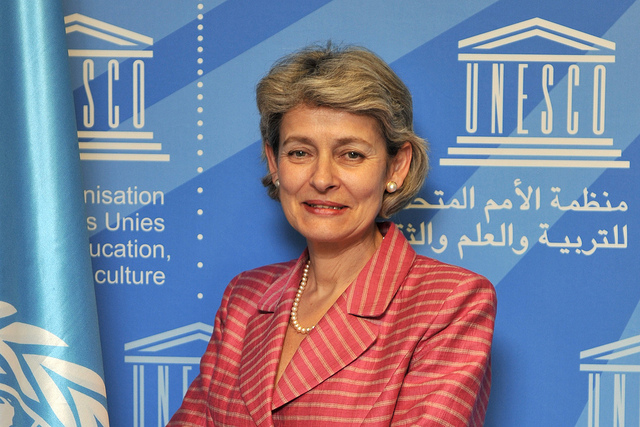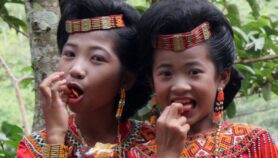By: Yojana Sharma
Send to a friend
The details you provide on this page will not be used to send unsolicited email, and will not be sold to a 3rd party. See privacy policy.
[PARIS] Irina Bokova, director-general of UNESCO (UN Educational, Scientific and Cultural Organisation), faces an early challenge to her bid to secure a second four-year term, putting in doubt her radical proposal to merge the organisation's science, social science and human sciences programmes.
At a meeting with UN secretary-general Ban Ki-moon in September, Bulgarian president Rosen Plevneliev announced he will nominate Bokova for a second term beginning in October 2013. But now Djibouti has nominated its ambassador to France, Rachad Farah, with the backing of the Organisation of Islamic Cooperation (OIC).
The early announcement took diplomats by surprise. A rival bid would not have been expected until early next year.
"It seems like there will actually be a race for the office," says John Daly, former president of the lobby group, Americans for UNESCO. "It is uncommon for the incumbent to be opposed — the last four director-generals averaged ten years in office and the majority served two terms."
The early announcement indicates that Djibouti will need a year of 'shuttle diplomacy' to drum up support, while diplomats in Paris have said that Bokova also needs a year of lobbying to convince member states that she deserves another term.
"Djibouti will have to spend a year gathering votes," says Daly. "But Bokova may be in more trouble than any of her immediate predecessors because she has a major financial crisis to deal with."
The United States froze its contributions to UNESCO after member states voted in October 2011 to admit Palestine as a member, costing the organisation almost a third of its operating budget.
This makes it hard to assess Bokova's record. "In her first two years she was operating on the budget created by her predecessor. Only last year could she implement her own vision and during that time UNESCO has been in continual crisis," Daly says.
Alexander Boksenberg, a former chairman of the UK National Commission for UNESCO, notes that Bokova "started very well, with good intentions, and had the incentive, drive and ideas to make a difference. But reform has been slow, exacerbated by the drastic cut in the budget."
Bokova promised to overhaul UNESCO and make it more efficient. In a speech to the executive board in October, which was widely seen as her manifesto for a second term, she put forward radical suggestions to combine programmes across all the sciences.
"I am determined that UNESCO should develop an integrated science for sustainable development, bringing together the natural, social and human sciences.
"UNESCO will integrate science and policy more tightly and make a success of the scientific advisory board to the UN secretary-general that he has asked us to constitute. This will also require greater support to states in science, technology and innovation for sustainable development," Bokova said, adding that UNESCO will continue to focus on African countries.
But some diplomats described the proposals as vague. According to Boksenberg, the proposal to integrate the sciences "looks like it has been hastily presented. There could have been more discussion".
However, he pointed out that Bokova had listened to other suggestions. "We proposed an overarching committee for the sciences and it has been set up by Bokova," he says.
Bokova also proposed closing the information directorate, which deals with media, open access publishing and Internet issues. But it is the merger of science and social science that could lead to a backlash, particularly by those involved in the science programmes.
But Bokova's re-election will hinge more on political issues, diplomats say. For example, she is widely seen as alienating some member states over her handling of the Obiang science prize. "Bokova lost the African vote over the prize. She needs to pull Africa in her direction," says one.
Djibouti is a small nation but it is positioning itself as both an African and an Arab country. The OIC, with 57 member states, unanimously voted on 17 November to support Farah's candidature at its Council of Foreign Ministers meeting in Djibouti. Farah has also been ambassador to Japan.
Eight candidates opposed Bokova during her first election, compared with an average of four to five in previous contests.
"People in the science community would rather have a person who understands science," said Daly. But Bokova, Farah and previous director-general Koichiro Matsuura are all professional diplomats.
Bokova told SciDev.Net that the root and branch reform of UNESCO to sharpen its activities is already showing results. Reform "is not slowing at all, it is gaining pace and strength", she said.
"I am determined to take this all the way forward. My determination is strengthened by the financial difficulties facing UNESCO, which reaffirms the need for sharper action across all areas of competence. Deep reform is underway and we are forging ahead, full steam."














